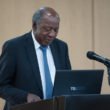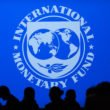Dear Your Excellency, Honourable Minister
This letter is written by people who have held top economic management positions at various times since 1991. We have all been privileged to be part of the various leadership teams that achieved some of Zambia’s most significant economic successes. We hold different opinions on a range of issues affecting the nation, but we have informed and shared views on the present direction of the national economy.
Zambia is currently living under very tough economic conditions. The economy is on the verge of collapse. Growth is expected to be negative this year, which will cause unemployment and send thousands onto streets. Incomes will fall and business will fail. The public budget is in disarray, failing to fund basic services. The Kwacha is rapidly losing value, driving rising inflation: this will quickly accelerate if the government pushes the Bank of Zambia to print money to compensate for lower tax revenues.
It may be true that external factors (climate change and Covid19) have damaged the Zambian economy. But the main cause is man-made policy mistakes. The most significant mistake is excessive borrowing by the government, as well as inefficient and/or low priority use of funds.
The Government needs to act now.
We believe that Government must rapidly conclude a programme with the International Monetary Fund (IMF). This matter has been on the table for more than five years, without reaching a deal. We urge the government to take this matter with the seriousness that it deserves, and to come to an agreement before the end of this year.
We believe that the most important matter in our economy is the debt problem. Excessive debt drives many of the current problems – huge repayments already mean that Government cannot fund budgeted programmes, mounting arrears are accumulating on many government contracts, and the business climate is strangulated. Serious economic progress or significant job-creating investments are unlikely while huge debt overhang remains.
Zambia is already struggling to pay its debts. Indeed, with the depreciation of the kwacha it is likely we will start defaulting on debt soon, creating economic chaos. If we do not have a solution in place before the first maturity of the Eurobond in 2022, the situation will be much, much worse. Despite this, our Government keeps on borrowing.
An IMF deal is essential to resolve the debt problem. Any other solution will require handover of significant sovereign assets, and must not be entertained.
An IMF deal brings money to the country, but it also sends a signal to the outside world that the recipient country is taking measures that will take it out of trouble. A deal will encourage inwards investment – and we need huge quantities of investments to boost incomes, increase tax revenues and enable us to pay off our debts.
A deal requires Zambia to meet performance benchmarks on sound economic management. These may be tough, but they are necessary. When we meet these benchmarks, the institutions and countries that are owed money by Zambia will agree to reschedule debt, giving the economy some breathing space. Investors (Zambians and foreigners alike) will feel confident to spend money and create jobs in our country. This is what Zambia needs. This will cure many of our self-made economic problems.
Reaching a deal with the IMF is not just about talking. We need to take measures to convince them that we are serious. This means that:
• Government must stop borrowing immediately.
• Government must halt unnecessary projects, stop wasteful expenditures, and fund only essential economic activities and basic services.
There is a growing image of Zambia as the ‘wild west’, where the application of the law and work of statutory bodies is arbitrary, and political. This also makes recovery impossible. Who will invest in a country where assets can be seized, or contracts are irrelevant? Government must immediately allow the professional functioning of all statutory institutions, and respect the rule of law.
We therefore urge the government to immediately focus on creating the conditions for fruitful engagement with the IMF, and ensure that a programme is agreed before the end of 2020.
Signed:
Hon Dr. Situmbeko Musokotwane MP, former Minister of Finance, Deputy Governor Bank of Zambia and Economic Advisor to late President Mwanawasa
Ng’andu Peter Magande, former Minister of Finance
Dipak K.A. Patel, former Minister of Commerce, Trade and Industry
Felix Mutati, former Minister of Finance
Dr. Caleb Fundanga, former Governor, Bank of Zambia, former Executive Director, African Development Bank
Dr Moses Banda, Economic Advisor to late President Levy Mwanawasa













12 Responses
The PF will never listen to such advice because it will make them unpopular. They live and breathe politics and that’s why they have messed up our economy.
There we go mr lungu.please we have people to help you for free.kindly take that timely advice seriously .zambia is looking to you.all the issues highlighted are real,there has been alot of mess during your tenure sir,we do not want to do to tou what we did to kaunda in 1990 and 1991.kindly act now.
Zambia is on autopilot
Very realistic and sound economic advice. I hope the government gets the message.
The Bible says, if you want wisdom let you read and hear from others for wisdom.
The economy is really performing badly. But do we really understand the implications of concluding a deal with IMF? Do we understand how blood-supping they’re? Let’s not forget the SAPs and how they impoverished the masses. There’s need to halt the borrowing, and negotiate the restructuring the terms of the debts and ensure corruption is fought ruthlessly.
Very true indeed
Zambia place in between two evils due to our ineptitude management of our resources by our representatives. Every noble person in the street and experts said fight corruption but our representatives treated that fight with kids gloves. Common people and experts told our representatives to minimize borrowing, but our representatives thought they were more wise but yet too short sighted, even blind to see long term knock-on effects, over load of debt to heavy to bear. Here we are now, either go to IMF or keep bowing from China until China takes our sovereign land into their control due to failure to repay loans. Really between two evils. Edgar and your trusted ministers, what is your solution? You have brought us into debt where late LPM lifted us from!
All has been said by the six(6) economical and financial giants. This has to taken very seriously. What the Government has to do is to following the warnings and precaution which is mentioned by professionals and Dr. Doctors for us grow big and literally our economy would to be floating. My number, pantu mwafula abachi mpwena mu government.
Very objective and well meaning patriots.
Well articulated big bros and it can’t be better than this timely advise to the powers that be. This is not about politics pipo it is about our own good, for me, it has been long overdue. Our economy is on its knees at the moment and failure to act now based on this advise, it will be beyond redemption sooner than later. Blaming external factors is not a part of the solution, remember,
blame game has no winner, we need instead take an introspection on our governance system which we have put on the bench in place of rampant corruption and disrespect for the rule of law.
1 year ago. Today the failure to heed from advise has lost everything and the ACC & DEC are on them